Welcome to the ultimate guide to SEO optimization, where we will take you through the essential steps to boost your website’s visibility and dominate the search results. Whether you’re a beginner looking to improve your online presence or a seasoned business owner seeking new strategies, this comprehensive guide will equip you with the knowledge and tactics needed to succeed in the competitive world of search engine optimization.
In this guide, we’ll dive into the world of keywords, content optimization, link building, and technical SEO, uncovering the secrets to achieving higher rankings and driving targeted traffic to your website. We’ll debunk common SEO myths, provide actionable tips, and share real-life examples of successful optimization strategies.
Our approach is to break down complex SEO concepts into easy-to-understand language, allowing you to implement strategies with confidence and see tangible results. Drawing on years of experience and industry best practices, this guide will serve as your roadmap to SEO success.
Get ready to optimize your website, increase your visibility, and outshine the competition. Let’s dive in and make your mark in the search engine landscape!
The importance of SEO for website visibility
In today’s digital age, having a strong online presence is crucial for businesses of all sizes. With millions of websites competing for attention, it’s essential to ensure that your website stands out and reaches your target audience. This is where SEO optimization comes into play.
Search Engine Optimization (SEO) is the practice of optimizing your website to improve its visibility in search engine results pages (SERPs). By implementing SEO strategies, you can increase your website’s organic (non-paid) traffic and attract highly targeted visitors who are actively searching for the products or services you offer.
The benefits of SEO go beyond just increasing website traffic. A well-executed SEO strategy can also enhance your brand’s credibility, improve user experience, and boost conversions. In short, investing time and effort into SEO optimization is one of the most effective ways to grow your online presence and achieve long-term success.
Understanding search engine algorithms
To effectively optimize your website for search engines, it’s crucial to understand how search engine algorithms work. Search engines like Google use complex algorithms to analyze and rank websites based on various factors. While these algorithms are constantly evolving, there are some fundamental principles that remain consistent.
One of the most important factors search engines consider is relevance. Search engines strive to provide users with the most relevant and useful results for their queries. To determine relevance, search engine algorithms consider factors such as keyword usage, content quality, and user engagement metrics.
Another important aspect of search engine algorithms is authority. Search engines assess the authority of a website by analyzing factors such as the number and quality of backlinks pointing to it. Websites that are considered authoritative are more likely to rank higher in search results.
By understanding these key principles, you can tailor your SEO efforts to align with search engine algorithms and improve your website’s visibility in search results.
Keyword research and selection
Keyword research is the foundation of any successful SEO strategy. Keywords are the search terms that users enter into search engines when looking for information, products, or services. By targeting the right keywords, you can attract highly relevant traffic to your website.
The first step in keyword research is to identify the topics and themes that are relevant to your business. Put yourself in the shoes of your target audience and think about the phrases they would use when searching for what you offer. Brainstorm a list of potential keywords and phrases.
Next, you’ll want to assess the search volume and competition for each keyword. Tools like Google Keyword Planner, SEMrush, and Ahrefs can help you gather data on search volume and competition levels. Look for keywords with high search volume and relatively low competition to maximize your chances of ranking well.
Once you have a list of target keywords, it’s important to incorporate them strategically throughout your website. Include them in your page titles, headings, meta descriptions, and within the body of your content. However, be sure to use keywords naturally and avoid keyword stuffing, as search engines can penalize websites that engage in this practice.
On-page optimization techniques
On-page optimization refers to the process of optimizing individual web pages to improve their visibility in search engine results. It involves a variety of techniques that help search engines understand the content and context of your web pages.
One of the most important on-page optimization techniques is creating high-quality, relevant content. Search engines prioritize websites that provide valuable and informative content to users. Ensure that your content is well-written, easy to read, and addresses the needs and interests of your target audience.
In addition to content, other on-page elements play a crucial role in SEO optimization. These include page titles, meta descriptions, headings, and URL structure. Each page on your website should have a unique and descriptive page title that includes your target keyword. Meta descriptions should be compelling and accurately summarize the content of each page.
Headings also play a key role in on-page optimization. Use heading tags (H1, H2, H3, etc.) to structure your content and make it more scannable for both users and search engines. Including your target keywords in headings can also help search engines understand the context of your content.
Lastly, optimize your URL structure by using descriptive and keyword-rich URLs. Avoid using long, complex URLs with unnecessary characters or numbers. Instead, create clean and concise URLs that accurately reflect the content of each page.
Off-page optimization strategies
While on-page optimization focuses on optimizing individual web pages, off-page optimization refers to activities that take place outside of your website but have a direct impact on its visibility and rankings.
One of the most important off-page optimization strategies is link building. Search engines consider backlinks (links from other websites to yours) as a vote of confidence and authority. The more high-quality backlinks your website has, the more likely it is to rank well in search results.
There are various ways to build backlinks to your website. One effective strategy is to create valuable and shareable content that naturally attracts backlinks. This can be achieved through blog posts, infographics, whitepapers, or other forms of content that provide value to your target audience.
Another link building strategy is outreach. Reach out to other website owners, influencers, or bloggers in your industry and request them to link to your content. When doing outreach, make sure to personalize your approach and offer something of value in return, such as guest blogging opportunities or promoting their content.
Social media engagement is another important off-page optimization strategy. By actively engaging with your audience on social media platforms, you can increase brand awareness, attract followers, and potentially earn social shares and backlinks.
Technical SEO considerations
In addition to on-page and off-page optimization, technical SEO plays a crucial role in improving your website’s visibility and rankings. Technical SEO focuses on optimizing the technical aspects of your website that impact search engine crawling and indexing.
One important technical aspect to consider is website speed. Slow-loading websites can negatively impact user experience and search engine rankings. Make sure your website is optimized for speed by compressing images, minifying code, and using caching techniques.
Another technical consideration is mobile-friendliness. With the increasing use of mobile devices for internet browsing, search engines prioritize mobile-friendly websites in their rankings. Ensure that your website is responsive and provides a seamless user experience across different devices and screen sizes.
Proper website structure and navigation are also important for technical SEO. Ensure that your website is organized logically, with clear categories, subcategories, and internal linking. This helps search engines crawl and index your website more effectively.
Lastly, optimize your website’s XML sitemap and robots.txt file. XML sitemaps provide search engines with a roadmap of your website’s pages, making it easier for them to discover and index your content. The robots.txt file tells search engines which pages they should and should not crawl.
SEO analytics and tracking
To measure the effectiveness of your SEO efforts and track your progress, it’s essential to implement SEO analytics and tracking. By analyzing data and metrics, you can identify areas for improvement and make data-driven decisions to optimize your website further.
One of the most popular analytics tools for SEO is Google Analytics. It provides valuable insights into website traffic, user behavior, and conversion rates. With Google Analytics, you can track organic traffic, monitor keyword performance, and identify the sources of your website’s traffic.
Another important tracking tool is Google Search Console. This tool helps you monitor and maintain your website’s presence in Google’s search results. It provides information on search queries, crawl errors, indexation status, and more.
In addition to these tools, there are various other SEO analytics and tracking platforms available, such as SEMrush, Moz, and Ahrefs. These tools offer advanced features like competitor analysis, backlink tracking, and keyword research to help you gain a competitive edge.
SEO tools and resources
To effectively optimize your website for search engines, it’s important to leverage the right tools and resources. These tools can help automate certain tasks, provide valuable insights, and streamline your SEO workflow.
Keyword research tools like Google Keyword Planner, SEMrush, and Ahrefs can help you identify high-potential keywords and assess their search volume and competition. These tools also provide keyword suggestions and insights into search trends.
When it comes to on-page optimization, tools like Yoast SEO and Moz On-Page Grader can help you analyze and optimize individual web pages. These tools provide recommendations for improving page titles, meta descriptions, headings, and content.
For link building and backlink analysis, tools like SEMrush and Ahrefs offer comprehensive backlink data, competitor analysis, and outreach opportunities. These tools can help you identify potential linking opportunities and monitor the quality of your backlink profile.
Lastly, staying up-to-date with the latest SEO trends and industry news is crucial. Online communities, forums, and blogs like Moz, Search Engine Journal, and Search Engine Land provide valuable insights, case studies, and best practices to help you stay ahead of the curve.
Conclusion: Taking your website to the top of the search results
In conclusion, SEO optimization is a vital component of any successful online marketing strategy. By implementing the techniques and strategies outlined in this guide, you can boost your website’s visibility, attract highly targeted traffic, and dominate the search results.
Remember, SEO is an ongoing process that requires constant monitoring, analysis, and adjustment. As search engine algorithms continue to evolve, it’s essential to stay up-to-date with the latest trends and best practices.
So, take what you’ve learned from this guide and start optimizing your website today. With dedication, patience, and the right strategies, you can take your website to the top of the search results and achieve long-term online success.
Now, go out there and make your mark in the search engine landscape!




